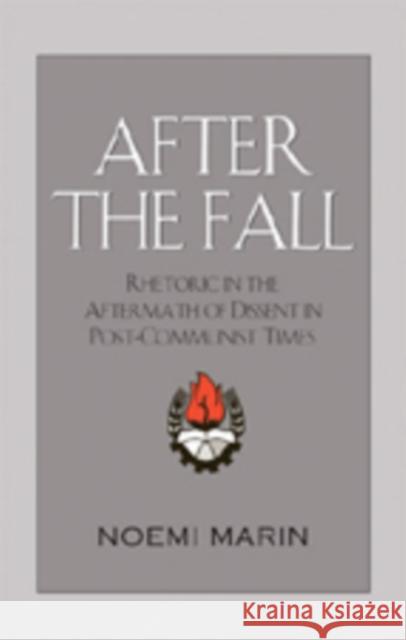After the Fall: Rhetoric in the Aftermath of Dissent in Post-Communist Times » książka
After the Fall: Rhetoric in the Aftermath of Dissent in Post-Communist Times
ISBN-13: 9781433100550 / Angielski / Twarda / 2007 / 188 str.
After the Fall: Rhetoric in the Aftermath of Dissent in Post-Communist Times examines the rhetorical role Eastern and Central European public intellectuals had in dismantling communist regimes in countries that before 1989 were part of the Iron Curtain. Prohibited or limited to engage in the cultural or political discourse of those countries, exiles and dissident intellectuals from this part of the world become rhetoricians silenced by the -official- discourse of communism. The year of 1989 marks the fall of communism, yet post-1989 public discourse continues to reveal problems of rhetorical legitimacy, conflicting democratic visions, and controversial participation in -civil society- throughout the New Europe. Noemi Marin analyzes famous writers from the area as critical intellectuals and exiles in order to explore the role of rhetoric and identity in writers own experiences during the long history of communism. Along with examinations of discursive relationships among power, culture and resistance in works by George Konrad, Andrei Codrescu, and Slavenka Drakulic before and after the fall of communism, Marin proposes specific dimensions for a rhetoric of exile pertinent to communist Eastern and Central Europe. After the Fall shows how critical works on identity, culture, and communist history by the writers studied aid in reconstituting a rhetoric of dissidence, identity, and legitimation in the public discourse of a changing Europe. The book offers a unique perspective on the complex contexts of political transition, in which competing public discourse on freedom and democracy intersect with totalitarian regimes, unsettled societies, and issues of resistance. This book will interest readers of rhetoric and civic discourse in the twentieth century as well as anyone curious about communism and post-communism."











